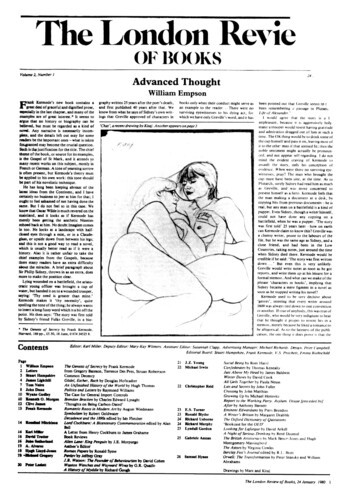China is a poor country. In 1978 the World Bank estimated that gross national product was no more than $290 per person. Yet everything which happens in China is inevitably important if only because the country is so very, very big. The Third Census of the People’s Republic, taken in July 1982, recorded 1,031,882, 511 Chinese, including, we may notice, the 18 million in ‘Taiwan Province’ and five and a half million in the ‘Hongkong and Macao Region’. These were not unexpected totals. Western demographers do not seem likely to quarrel with them, or to doubt that China is the first political society to attain a billion people, and to include a quarter of the population of the world. What does give us pause, and may reveal something of the efficient working of that ancient and colossal polity, is the great rapidity with which the counting was carried out. The preliminary results were published on 27 October 1982, 17 weeks after the count, which is only ten weeks longer than our own record in 1981. Moreover all this happened in a country where automatic computation was virtually unknown, and where, the Head of the Census informs us, over five million enumerators and over a million census supervisors had to be mobilised and trained. Computer analysis is now going on, using machinery which the United Nations has helped to provide. This will yield the detailed statistics which Chinese administrators so urgently need from their first national enumeration since 1964. In China, according to the Census Communiqué, about 23.5 per cent of all persons are illiterate or semi-literate, about a third of the population has no more than a primary-school education, and not much more than one in 200 has been to a university. Yet these levels are markedly better than they were in 1964, in spite of all that happened in between. Perhaps we need not be so surprised at the rapidity of the calculations, since, in a sense, arithmetic has always been mechanised. The use of the abacus is pretty well universal.
Communiqué of the State Statistical Bureau of the People’s Republic of China on Major Figures in the 1982 Population Census
Beijing, 6 pp., October 1982
Patriarchy and Socialist Revolution in China by Judith Stacey. Long Lives: The Chinese Elderly and the Communist Revolution by Deborah Davis-Friedmann. 1 more book reviewed
China is a poor country. In 1978 the World Bank estimated that gross national product was no more than $290 per person. Yet everything which happens in China is inevitably important if only...





